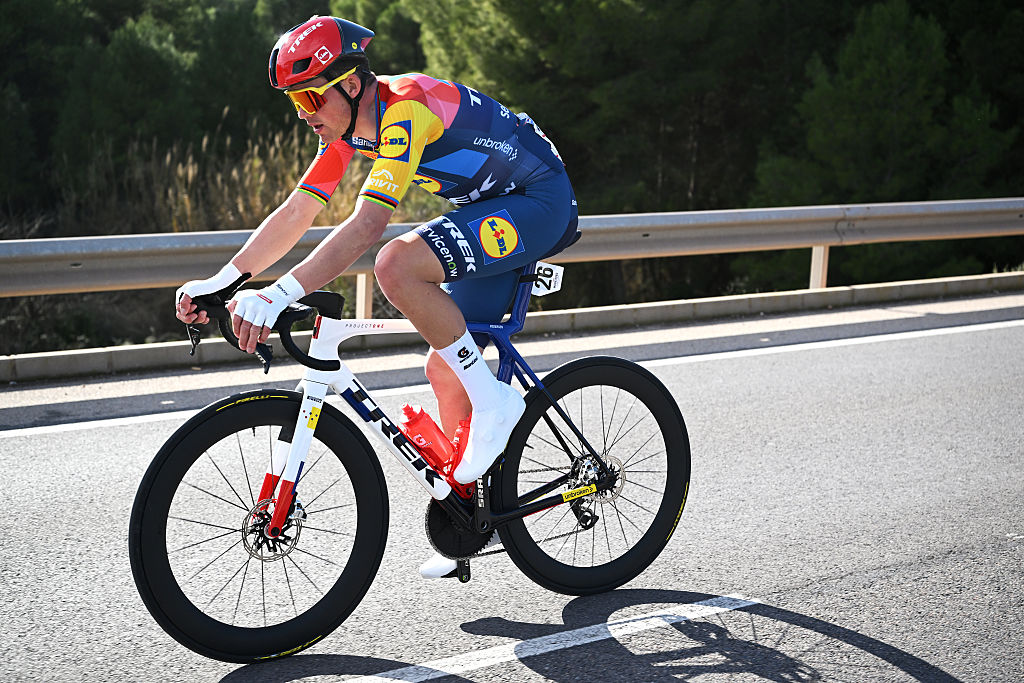Nibali: When Froome is isolated, 'it gets much more difficult for him'
Italian strengthens grip on second overall on stage 14
The latest race content, interviews, features, reviews and expert buying guides, direct to your inbox!
You are now subscribed
Your newsletter sign-up was successful
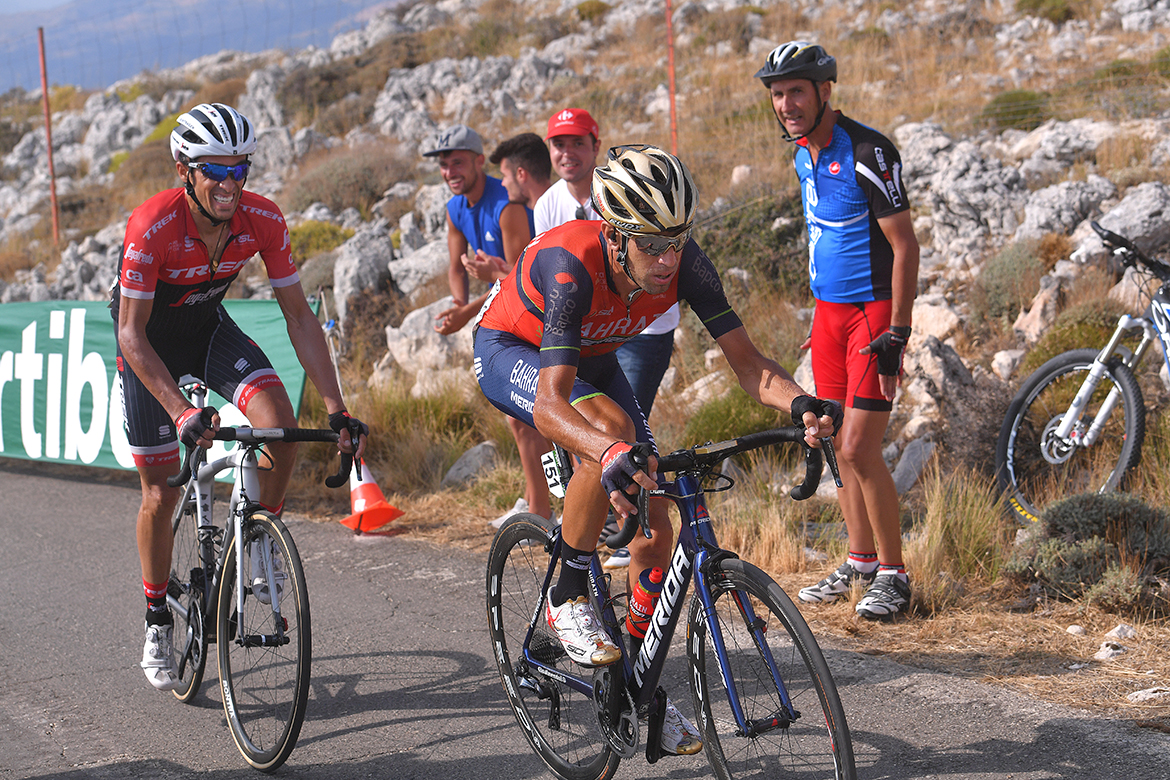
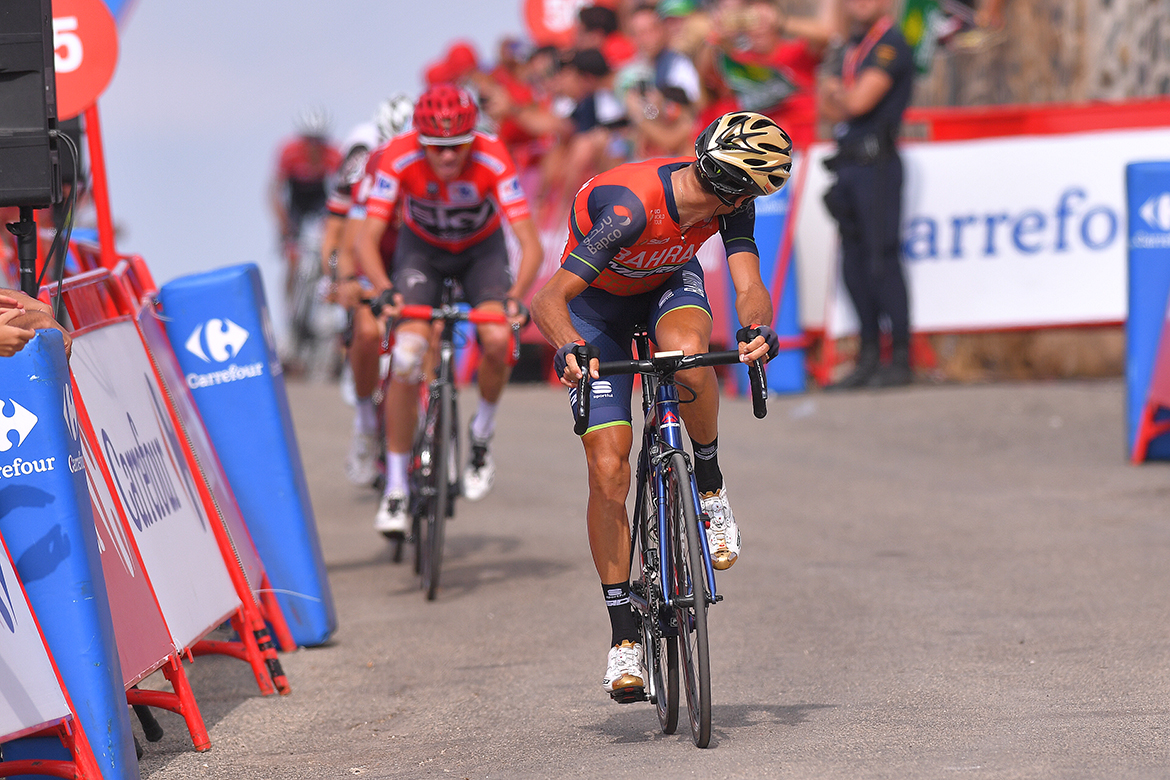
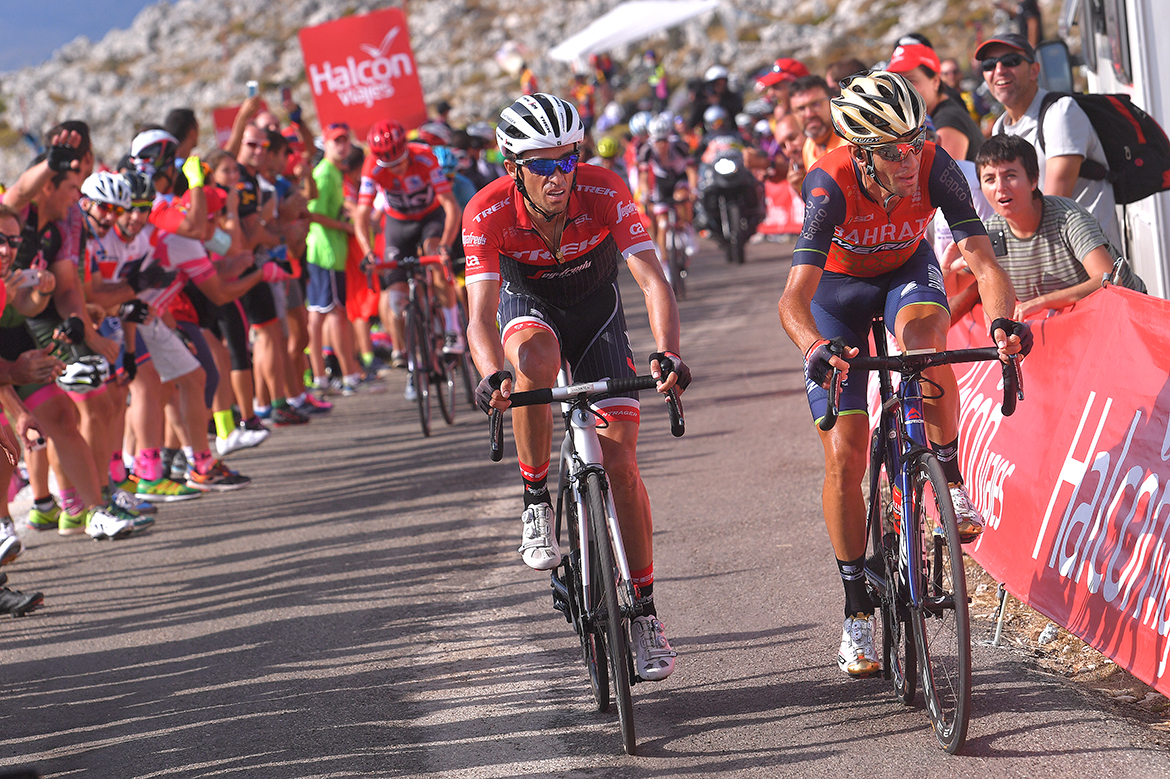
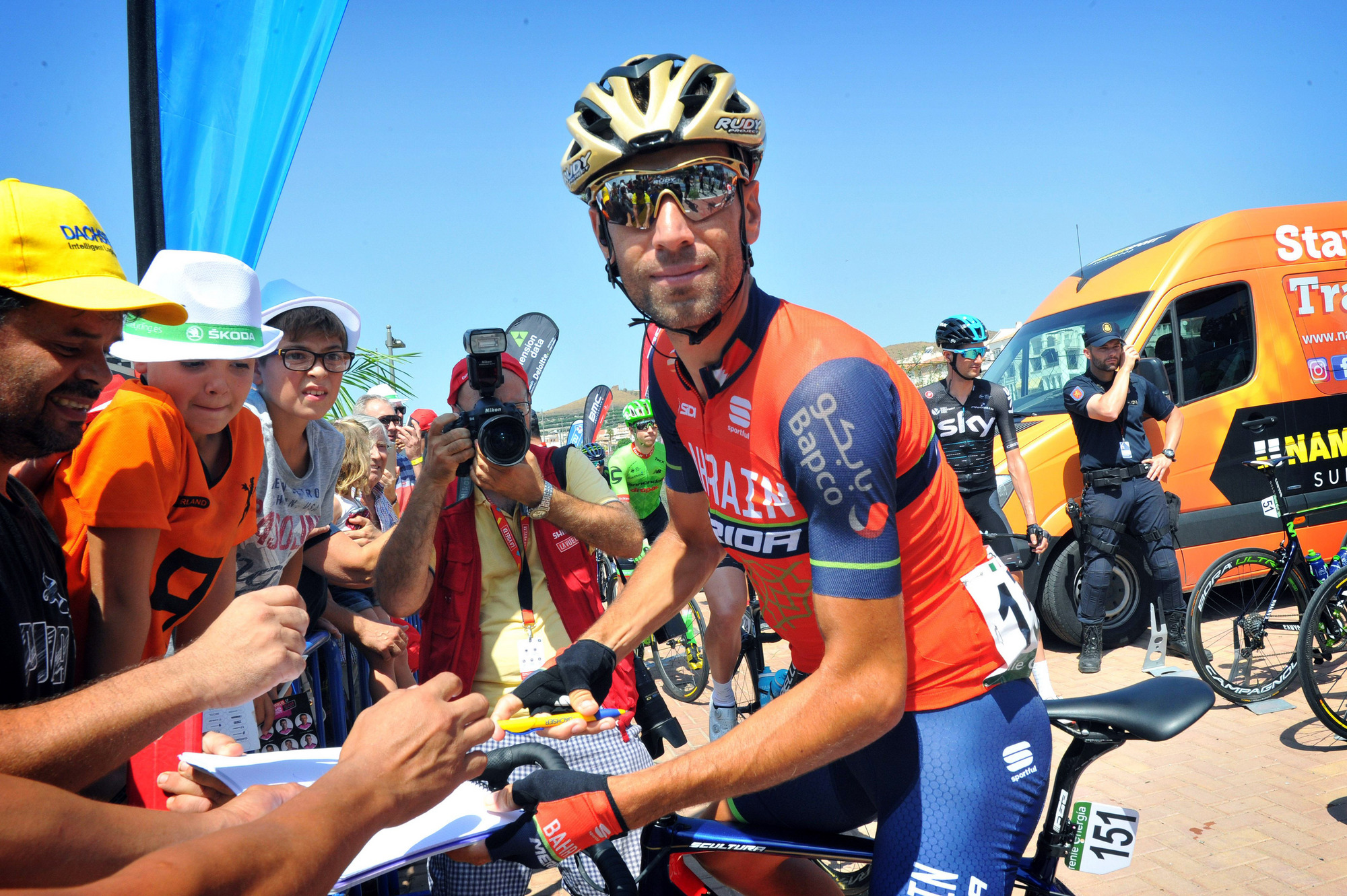
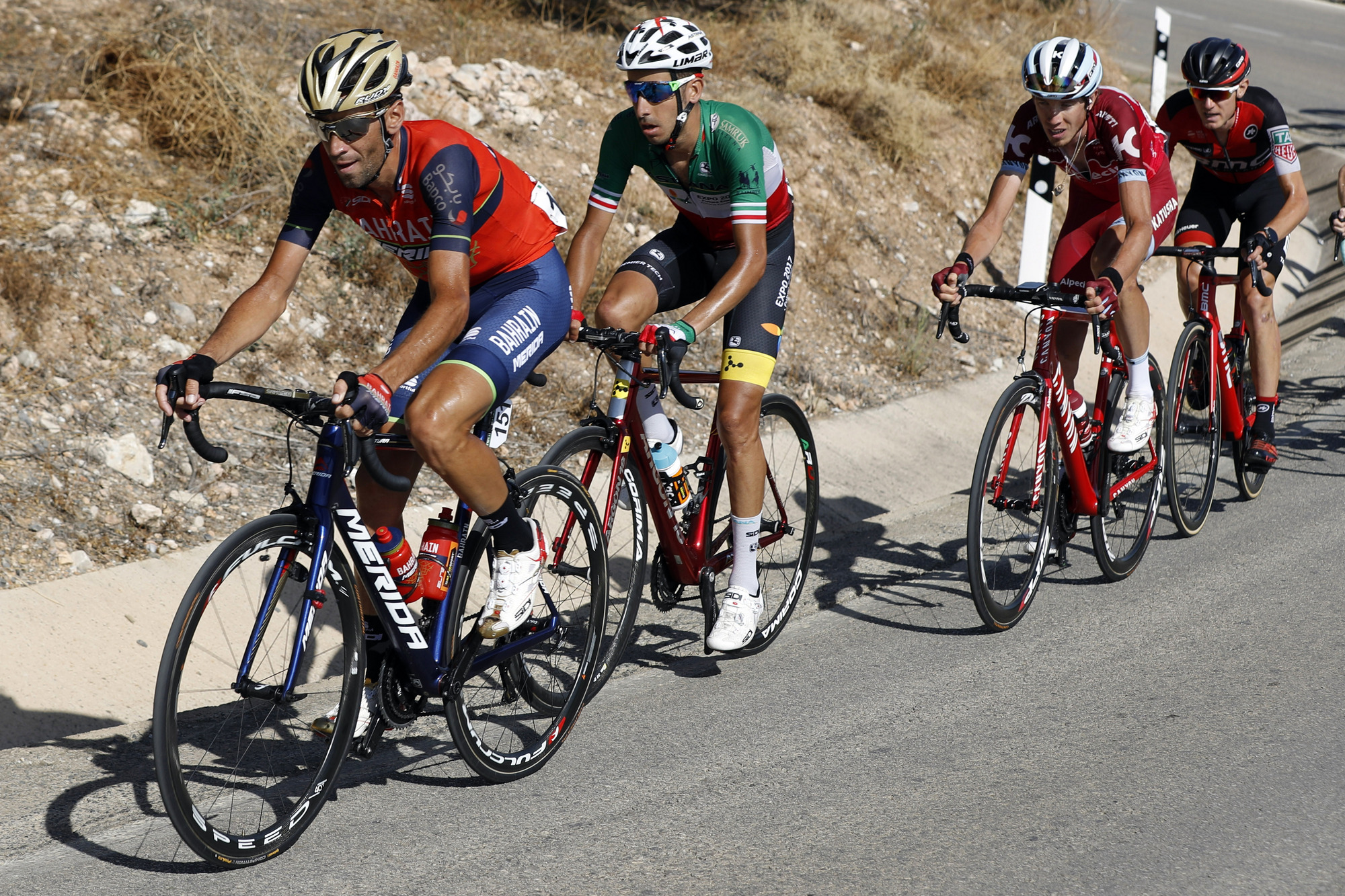
Vincenzo Nibali (Bahrain-Merida) continued to pile the pressure on Vuelta a España leader Chris Froome on Saturday's ascent of La Pandera, but for the Sicilian the key to cracking the Briton is not in beating or testing Froome one-to-one. Rather, it's all about beating Froome's teammates.
Nibali responded to an attack by Esteban Chaves (Orica-Scott) and Alberto Contador (Trek-Segafredo) that allowed the Italian, currently second overall, briefly to move ahead of Froome on the final climb of stage 14 by some 10 seconds. However, rather than crack, Froome limited the gaps to around 40 or 50 metres before closing that ephemeral advantage down. When Froome was joined by teammate Wout Poels, it looked as if Sky had comfortably contained Nibali and Contador's brief rebellion against the British team's domination.
However, Nibali had another card to play in the final kilometre when Miguel Angel Lopez (Astana) bounded away, an acceleration that left Froome minus Poels, again, and lacking team support. Nibali proved to be the fastest in a group of four favourites, crossing the line in third place ahead of Froome and snatching the last time bonus on offer on the stage.
Interestingly, Nibali's snap analysis to reporters on the Pandera finish line focused on strategies for beating Froome, rather than looking at his own performance. The 2010 Vuelta winner praised Team Sky for their massive collective strength, something TV viewers could easily appreciate when Sky had no less than six support riders for Froome still in the front group of 19 as they came onto the last two climbs of the day. Perhaps as a result of that evident strength in depth of Sky's, Nibali said he was convinced that the Briton could only become very vulnerable in the Vuelta once that support was stripped away.
"He had help [because] he has a great team and he is able to control different scenarios when they happen, that's Froome's strong point," Nibali argued.
"It's clear, though, that when his teammates become a bit more tired and he's isolated, then it gets much more difficult for him.
"In fact, the last 100 metres of the race, it was more difficult for him, and the race suddenly opened up. I tried to gain as much time as possible."
The latest race content, interviews, features, reviews and expert buying guides, direct to your inbox!
Assuming Froome does not hit a crisis of the size that he suffered very late on at Peyragudes in the Tour, whatever happens to Froome in such a short distance in the eight remaining stages here is not going to lose the Briton the Vuelta. However, Nibali's calculated manouvre in the last part of la Pandera has nonetheless gained him a little time and will have boosted his morale a little, too.
Gaining 26 seconds on Chaves and cutting back his time loss on Froome, albeit by four seconds, has strengthened his second place overall. Nibali is now third at 55 seconds, with his closest pursuer now Wilco Kelderman (Team Sunweb), third at 2:17.
But perhaps more importantly than the time gain itself, Nibali has shown again – as he already did at Calar Alto on Wednesday, where Nibali briefly went clear in the windswept finale – that he is getting stronger just as the Vuelta hits the end of the second week.
Whether this improved condition will mutate into same kind of form that has won Nibali four Grand Tours in the past is the big unresolved question of the Vuelta, and Froome will surely gain significant time on the Italian next Tuesday in the Logroño time trial. However, at the moment, and for the second time in three days, Nibali has made some small inroads on Froome's advantage. Should he do so again at Sierra Nevada, then the Briton might just face a much tougher fight in the Vuelta's third week than anyone expected.
Alasdair Fotheringham has been reporting on cycling since 1991. He has covered every Tour de France since 1992 bar one, as well as numerous other bike races of all shapes and sizes, ranging from the Olympic Games in 2008 to the now sadly defunct Subida a Urkiola hill climb in Spain. As well as working for Cyclingnews, he has also written for The Independent, The Guardian, ProCycling, The Express and Reuters.


